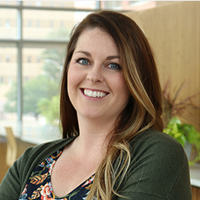PhD in Toxicology
Our graduate program in toxicology has a national and international reputation for quality. Known for our preparation in the areas of molecular toxicology, cancer biology and pharmacology, neurotoxicology and immunotoxicology, we’re here to train you for a successful research career.
We’re problem-solvers in the world of toxicology. Our program focuses on the molecular mechanisms underlying the toxic effects of therapeutic agents, industrial chemicals and environmental toxins. An integral part of this program is the investigation and characterization of the genetic components that underlie an organism's or tissue's resistance or susceptibility to toxic agents.
Our objective in this program is clear: educate pre-doctoral students to develop independent research careers in molecular and environmental toxicology. Upon completion of the toxicology graduate program, our students receive PhD degrees in toxicology and utilize their training in academia, industry or government.
Our world-class faculty is made up for scientists who make an impact. Faculty members have primary appointments in the School of Pharmacy, the School of Medicine, the Webb-Waring Antioxidant Research Institute, the National Jewish Medical Center or the Rocky Mountain Poison and Drug Center.
For students, that means access to research opportunities that cover the breadth of toxicology with major strengths in cancer/carcinogenesis/chemoprevention, oxidative stress and antioxidants, neurotoxicology, pulmonary toxicology, hepatotoxicology, pharmacogenetics, pharmacogenomics, immunotoxicology and forensic and clinical toxicology.
In addition to our graduate students, we train many postdoctoral fellows and wok with highly trained technicians and undergraduate researchers within the toxicology program. After students complete their coursework and choose a project, they become essentially full-time researchers until the dissertation is submitted to the faculty. Students normally attend and present their research results at national scientific meetings. Communication with scientists at other institutions is considered an important facet of research training.
While there is considerable overlap between the two programs, the Molecular Toxicology Graduate Program focuses on the molecular mechanisms underlying the toxic effects of therapeutic agents, industrial chemicals and environmental toxins. An integral component of this program is investigation and characterization of the genetic components that underlie an organism's or tissue's resistance or susceptibility to toxic agents.
Applications for all doctoral programs are submitted electronically through the Graduate School of the University of Colorado Denver. After signing up for an account, select 'PhD' under the 'Academic Interests' menu and scroll down to 'Skaggs School of Pharmacy and Pharmaceutical Sciences' and select "PhD in Toxicology."
Application requirements are:
- A completed Graduate School application and $50.00 application fee (Domestic) $75.00 application fee (International)
- A baccalaureate degree of arts or science from an accredited college or university with a minimum GPA of 3.0.** One (1) official transcript of all academic work completed to date with awarded baccalaureate degree. University transcripts from other countries must include a transcript evaluation from World Education Services (WES). Applicants who complete a transcript evaluation with WES will have their application fee waived automatically.
- All applicants for the program should complete a year of study in the following subjects: general chemistry, organic chemistry, calculus, biology, English and physics. In addition, courses in the following subjects are highly recommended to supplement the student's background: physiology, biochemistry, statistics, cell biology, physical chemistry, and computer science.
- Three (3) letters of recommendation from professors or research supervisors familiar with your aptitude for graduate study
Additionally:
- The GRE (Graduate Record Examination) is not required but is optional.
- The TOEFL is required of applicants for whom English is not their first language, Duolingo and IELTS also accepted (more information on this here)
- Please use 4875 as the Institution Code so that the test results will be sent directly to our institution
- Under special circumstances, deficiencies in important areas may be made up within the first year after entrance into the program. Normally, admission to the program will be based on an undergraduate GPA of 3.0 or better. However, applicants' recommendations, research experience and additional individual accomplishments will also be considered in the admissions process.
Application opens September 1, 2024. Applications will not be reviewed until all required materials have been received. The application deadline for Fall 2025 admission is December 1, 2024 for all students.
As part of the CU Anschutz graduate school, all PhD students in good academic standing are guaranteed financial support.
Although a priority of the School of Pharmacy is to provide financial support to its graduate students, stipend, tuition and fees for graduate studies in the School of Pharmacy are the sole responsibility of the student. Payment of stipend, tuition and any fees by the School of Pharmacy or by grants, contracts or gifts to the School of Pharmacy faculty is contingent upon satisfactory academic progress (as defined by the Toxicology Graduate Student Handbook) and completion of required core courses, seminars, research rotations, and examinations. The School of Pharmacy also reserves the right to review and adjust its funding policies at any time. Stipends are awarded on a 12-month basis. All students are expected to work towards program requirements for 12 months of the year.
The PhD program in toxicology trains graduate students to become proficient and successful investigators who are able to:
- Demonstrate a basic knowledge of central concepts in the biomedical sciences.
- Understand the current concepts in toxicology.
- Read and critically evaluate the scientific literature.
- Generate hypotheses based on current concepts in the field, then design, conduct, and interpret their own research projects.
- Communicate research results effectively through oral presentations at scientific seminars, conferences, and other venues.
- Present research results in national meetings, peer-reviewed publications and in a dissertation.
- Write a grant proposal.
At the School of Pharmacy, our programs are characterized by a vigorous research environment. A major research emphasis area is toxicology, which studies the adverse effects of drugs and xenobiotics on the body. Toxicology is the biomedical science concerned with understanding the adverse effects of chemicals and other dangerous substances on living organisms.
Toxicologists seek to identify the toxic effects of drugs and chemicals on living organisms, and to understand the underlying molecular and cellular mechanisms associated with toxic injury. In doing so, toxicologists use state-of-the-art biological and chemical techniques to answer questions such as: How dangerous are chemicals to people? How much exposure is required to cause harm? What are the effects of such chemical exposures?
The objective of the toxicology graduate program at the University of Colorado is to educate pre-doctoral students to develop independent research careers in molecular and environmental toxicology. Upon completion of the toxicology graduate program, students will receive a PhD degree in toxicology and utilize their training in academia, industry or government.
The following are specific rules approved by the graduate faculty of the School of Pharmacy for graduate studies leading to doctor of philosophy degree in toxicology. All other requirements for these degrees will follow the guidelines of the Graduate School, which can be found in the Toxicology Graduate Student Handbook. The student carries the major responsibility of meeting the rules of the School of Pharmacy and the Graduate School. Failure to meet the following rules and guidelines may result in delay of graduation.

Manisha Patel PhD
Associate Dean for Research and Graduate Studies, Professor
- Department of Pharmaceutical Sciences
Email Address:manisha.patel@cuanschutz.edu
Primary Phone:303-724-3604
Mailing Address:
- CU Anschutz
Pharmacy and Pharmaceutical Sciences Building
12850 East Montview Boulevard
Third Floor Room 3119
Aurora, CO 80045
Education, Licensure & Certifications
- BS, Pharmacy, M.S. University
- PhD, Pharmacology and Toxicology, Purdue University
- Post-doc, Neuroscience, Duke University.
Affiliations
- University of Colorado, Program in Neuroscience
- National Jewish Medical & Research Center, Department of Medicine
Administrative Staff

Manisha Patel PhD
Associate Dean for Research and Graduate Studies, Professor
- Department of Pharmaceutical Sciences
Email Address:manisha.patel@cuanschutz.edu
Primary Phone:303-724-3604
Mailing Address:
- CU Anschutz
Pharmacy and Pharmaceutical Sciences Building
12850 East Montview Boulevard
Third Floor Room 3119
Aurora, CO 80045
Education, Licensure & Certifications
- BS, Pharmacy, M.S. University
- PhD, Pharmacology and Toxicology, Purdue University
- Post-doc, Neuroscience, Duke University.
Affiliations
- University of Colorado, Program in Neuroscience
- National Jewish Medical & Research Center, Department of Medicine
206 KB

Jared Brown, PhD
Professor Toxicology Graduate Program Director, T32 Training Program in Molecular and Systems Toxicology Director, Colorado Center for Nanomedicine and Nanosafety Co-DirectorEmail: jared.brown@cuanschutz.edu
